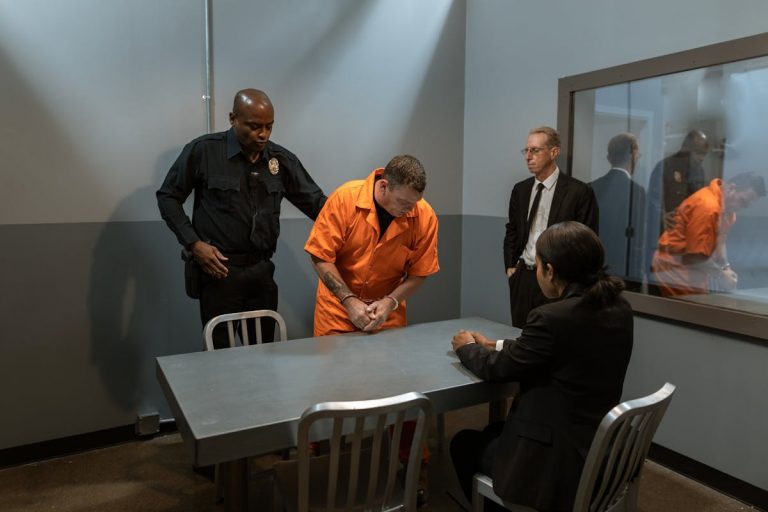The role of a defense attorney in child sex crime cases is a delicate and crucial one, balancing the task of ensuring a fair trial for the accused while maintaining a high level of sensitivity to the victim. These attorneys undergo the rigorous process of gathering and analyzing evidence, formulating defense strategies, and negotiating pleas on behalf of their clients. Yet the complexities of such cases do not end there, as they must also navigate the intricate web of legal proceedings and potential media attention. How does a defense attorney manage these responsibilities effectively, and what ethical considerations come into play? Let’s dissect the subject further.
The Importance of Legal Representation
Why is legal representation critical in child sex crime cases? The gravity of these offenses and the repercussions they carry necessitate the need for experienced and skilled legal counsel. The role of a defense attorney in these situations extends beyond the courtroom walls, encapsulating aspects of client confidentiality, emotional support, and strategic defense planning.
An attorney’s duty to maintain client confidentiality is paramount in these cases. The sensitive nature of child sex crimes means that any leaked information could potentially cause irreversible damage to the client’s reputation, even before a verdict is reached. This confidentiality affords the accused an environment where they can openly discuss their case, aiding in the formation of an effective defense strategy.
Additionally, an attorney also provides emotional support to the client. The prospect of facing a child sex crime charge is certainly stressful; a seasoned attorney, with their empathetic and assertive approach, can help alleviate this stress. They offer reassurance, answer queries, and provide guidance every step of the way, ensuring the client doesn’t feel isolated during this challenging time. Consequently, legal representation in child sex crime cases is not just important—it’s critical.
Understanding the Charges
A defendant’s comprehension of the charges levied against them forms the foundation of their defense in child sex crime cases. It is the role of the defense attorney to guarantee that the accused understands the legal definitions of the charges, as unfamiliarity can hamper the formulation of a robust defense strategy.
Child sex crime laws vary from jurisdiction to jurisdiction, but all are severe and complex. These charges can range from child molestation, child exploitation, to child pornography. Each carries its unique legal implications and potential penalties, which can be confusing for someone not versed in law. It is therefore essential for the accused to have a thorough understanding of these charges and potential repercussions.
Moreover, the attorney also has a responsibility to clarify the victim implications of the charges. This encompasses the potential impact on the alleged victim, the weight of their testimony, and how it may influence the court’s decision. It is important to remember that while defense attorneys advocate for the accused, they must also respect the rights and emotional well-being of the victims involved. This delicate balancing act requires deep understanding, empathy, and assertiveness.
Gathering and Analyzing Evidence
In the domain of child sex crime cases, a defense attorney’s role extends beyond understanding the charges. A critical aspect of their job involves the strategic gathering and meticulous analysis of evidence. This includes mastering evidence collection techniques and interpreting forensic findings, both of which can greatly impact the direction and outcome of the case.
Evidence Collection Techniques
Steering through the intricate process of evidence collection in child sex crime cases calls for meticulous attention to detail and expertise. The defense attorney is faced with the challenging task of gathering, preserving, and analyzing various forms of evidence. This includes physical evidence, witness testimonies, and increasingly, digital evidence.
Witness credibility plays a significant role in these cases. The defense attorney must carefully assess the reliability and consistency of the testimony. They must be empathetic yet assertive in questioning the witness, ensuring the truth is revealed without causing further trauma.
Digital evidence, such as text messages, social media interactions, or internet search histories, are growing in importance. As technology advances, so do the methods for exploiting it in the commission of crimes. This makes the defense attorney’s task of understanding and presenting this evidence in court even more complex.
Interpreting Forensic Findings
Maneuvering the complexities of forensic findings is a vital task for a defense attorney in child sex crime cases. The process involves not just understanding the technical aspects of evidence, but also interpreting it through the lens of legal standards. This is where the role of a forensic expert testimony becomes essential. It is the defense attorney’s duty to guarantee that the testimony is presented in a way that is both accurate and understandable to the court.
Forensic expert testimony can provide a more thorough understanding of the evidence, helping to elucidate complex scientific concepts and procedures. However, the defense attorney must critically examine this testimony, guided by the interpreting evidence standards, to confirm its credibility and relevance to the case at hand.
The defense attorney’s role extends beyond merely presenting the testimony. They must also challenge any inadequacies in the forensic findings, question the reliability of methodologies, and contest any unjustified conclusions. This assertive approach can help guarantee that the trial is fair and the client’s rights are protected. In the emotionally charged arena of child sex crime cases, balancing empathy with legal rigor is vital, reinforcing the significant role of the defense attorney in interpreting forensic findings.
Crafting a Defense Strategy
Crafting a defense strategy is a critical role a defense attorney plays in child sex crime cases. This process involves a thorough understanding of the charges, meticulous gathering of evidence, and a strategic challenge to the prosecution’s case. It is through this strategically designed defense that the attorney guarantees the legal rights of the accused are upheld and justice is served.
Understanding the Charges
In the complex terrain of child sex crime cases, a defense attorney must first and foremost understand the nature and severity of the charges brought against their client. This involves an in-depth exploration of legal definitions, and an examination of case examples for precedent and context.
The attorney must grasp the specifics of the charges, which may range from possession or distribution of child pornography, to sexual exploitation, to rape of a minor. Each charge carries its own set of legal definitions, and the attorney must be well-versed in these to construct a viable defense.
Case examples serve as a critical tool for understanding how similar charges have been dealt with in the past. They provide a roadmap that can guide an attorney in crafting an assertive yet empathetic defense strategy. For example, understanding how past defense arguments have been received can shape the approach to the current case.
A thorough understanding of the charges is not just about comprehending the legal language. It’s about empathizing with the gravity of the situation, acknowledging the stress and fear a client may be experiencing, and ultimately, asserting a strong defense that protects their rights in the face of severe accusations.
Gathering Evidence
Once the charges have been thoroughly understood, a defense attorney’s next crucial step is to gather evidence in order to craft a robust defense strategy. This process is multifaceted and requires a meticulous approach. The primary focus is on witness statements and expert testimonies, which form a significant part of the evidence.
Witness statements can provide a different perspective on the events in question and may contradict the prosecution’s narrative. Such contradictions can prove to be the difference between a conviction and acquittal. As a result, defense attorneys often engage in extensive interviews to extract critical information from witnesses.
Expert testimonies are another critical component of the defense strategy. This evidence often involves specialists in various fields, such as forensics, psychology, or digital technology. Their insight can support or challenge the allegations, depending on the specifics of the case. For instance, a forensic expert can give an opinion on physical evidence, while a psychologist can shed light on the child’s behavior and credibility.
The gathered evidence is then carefully analyzed and incorporated into the defense strategy. This meticulous preparation is an essential aspect of a defense attorney’s role, ensuring every possible angle is explored to protect their client’s rights.
Challenging Prosecution’s Case
An essential part of a defense attorney’s role in child sex crime cases is to meticulously challenge the prosecution’s case, a task that requires a well-crafted defense strategy. The objective is to expose any weaknesses or inconsistencies, which could potentially lead to case dismissal strategies.
A defense attorney must be knowledgeable of the law and assertive in presenting their client’s case. They must empathetically navigate the sensitive subject matter, articulating their client’s narrative while scrutinizing the prosecution’s evidence, from physical exhibits to witness testimonies.
Witness credibility assessment plays a substantial role in challenging the prosecution’s case. Defense attorneys meticulously examine the past behavior, motives, and reliability of each witness. Discrepancies in testimonies, bias, or a history of dishonesty can considerably undermine a witness’s credibility. It’s essential to identify these aspects early on, as they can dramatically affect the case’s outcome.
Moreover, defense attorneys must also investigate the legality of the prosecution’s evidence collection, ensuring no constitutional rights were violated. If such violations are discovered, they can move to suppress that evidence, potentially weakening the prosecution’s case and paving the way for case dismissal.
In all, a defense attorney’s role in challenging the prosecution’s case is multifaceted and requires a tailored defense strategy.

The Plea Bargaining Process
Maneuvering the complex maze of the plea bargaining process is a critical role for a defense attorney in child sex crime cases. This phase of the legal process can be fraught with emotional intensity and considerable legal implications, making the lawyer’s expertise and guidance indispensable.
During plea negotiations, the defense attorney’s role may broadly encompass:
- Strategizing the best course of action: This involves understanding the strength of the prosecution’s case, the potential defense strategies, and the consequences of various plea decisions.
- Negotiating with the prosecutor: The defense attorney works to secure the most favorable terms possible for their client, taking into account sentencing considerations and the client’s best interests.
- Advising the client: The attorney should clearly communicate all available options and potential outcomes to the client, ensuring they have a full understanding of the process.
- Ensuring the client’s rights are protected: The defense attorney must vigilantly safeguard the client’s legal rights throughout the plea bargaining process.
Representing the Accused in Court
Steering through the turbulent waters of a courtroom is a vital aspect of a defense attorney’s role in child sex crime cases. Guaranteeing their client’s right to a fair trial is upheld, they advocate vigorously to project a compelling narrative that effectively counters prosecution’s claims.
Central to this effort is trial preparation. Leaving no stone unturned, the attorney meticulously reviews evidence, scrutinizes witness testimonies, and anticipates the prosecution’s strategies. They also prepare their client for potential cross-examinations, focusing on delivering clear, consistent, and credible responses.
Respecting client confidentiality is another essential aspect of representing the accused in court. The attorney-client privilege serves as the bedrock of their relationship, fostering an environment of trust. This enables open and honest communication, critical for developing a robust defense strategy.
In the emotionally charged atmosphere of child sex crime cases, the defense attorney’s role extends beyond legal representation. They often provide emotional support to their clients, helping them navigate the distressing process with dignity and resilience.
Inherent in their role as advocates, defense attorneys work to guarantee their clients are not prejudged, reinforcing the fundamental principle of ‘innocent until proven guilty’. They remain an unwavering pillar of support, defending their client’s rights and dignity in the face of overwhelming odds.
Ensuring Fair Sentencing
Even after the verdict, a defense attorney’s role in child sex crime cases does not end. They take on the critical responsibility of ensuring fair sentencing for their client. This involves presenting evidence of mitigating factors that might warrant a lesser sentence and advocating for rehabilitation options over punishment alone.
- Presenting Evidence of Mitigating Factors: Defense attorneys meticulously gather and present evidence of mitigating factors. These may include the defendant’s lack of prior convictions, mental health issues, or any circumstances that could reduce the severity of the sentence.
- Advocating for Rehabilitation: They ardently argue for rehabilitation options. They emphasize the importance of treatment and counseling in helping the defendant reintegrate into society and prevent re-offending.
- Sentencing Hearings: They represent their clients at sentencing hearings, ensuring that the court considers all relevant factors before deciding on a verdict.
- Balance: Most importantly, defense attorneys aim to strike a balance between society’s need for justice and the defendant’s rights, ensuring that the sentence is proportional to the crime committed and the defendant’s circumstances.
The defense attorney’s role in ensuring fair sentencing is therefore a delicate, empathetic, and assertive pursuit of justice.
Post-Trial Advocacy and Appeals
Traversing the complex landscape of the justice system doesn’t end at the verdict for defense attorneys in child sex crime cases. Their responsibilities extend into the post-trial phase, where they continue to champion their client’s interests. Here, post-trial motions and appellate review become the key components of their advocacy work.
Post-trial motions are legal instruments that defense attorneys utilize to argue against the trial verdict. They may seek a new trial, a reconsideration of the judgment, or an amendment of the sentence. These motions provide an opportunity to present new evidence or highlight procedural errors that could have influenced the outcome.
Should these motions fail, the defense attorney then turns to appellate review. This involves presenting the case to a higher court, with the objective of overturning the verdict or reducing the sentence. The appellate process is complex and requires a deep understanding of the law, as well as a strategic approach to arguing the case. An effective defense attorney is relentless in their pursuit of justice throughout this process, continually advocating for their client’s rights and freedoms, while maintaining a deep sense of empathy and understanding towards the highly sensitive nature of child sex crime cases.
Frequently Asked Questions
How Does a Defense Attorney Handle Media Attention in Child Sex Crime Cases?
A defense attorney employs strategic media strategies and public relations techniques to manage public perception, ensuring the client’s rights are preserved while maintaining the dignity and sensitivity of the case under intense media scrutiny.
What Is the Role of a Defense Attorney in Counseling the Accuseds Family?
The role of a defense attorney in counseling the accused’s family includes providing family support and implementing effective communication strategies. They offer guidance, manage expectations, and help the family navigate the legal process empathetically and assertively.
How Does the Attorney-Client Privilege Apply in Child Sex Crime Cases?
In child sex crime cases, attorney-client privilege is essential for evidence evaluation and legal strategy development. It guarantees confidential communication, enabling the accused to provide necessary details for their defense without fear of information disclosure.
How Does a Defense Attorney Manage Personal Emotions in Child Sex Crime Cases?
In child sex crime cases, defense attorneys manage personal emotions by adhering to professional ethics, practicing emotional resilience, and separating personal beliefs from their legal duty to guarantee a fair, unbiased judicial process.
What Training Does a Defense Attorney Receive for Handling Child Sex Crime Cases?
A defense attorney receives extensive legal education, including specialized training for handling sensitive cases such as child sex crimes. This training equips them with the necessary skills to represent and defend their clients effectively.





